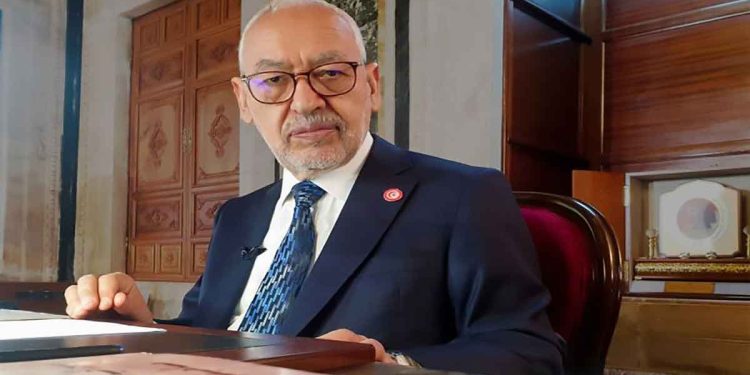The Tunisian regime’s violations of basic civil norms continues to worsen. Today, Thursday 20 April, a judge ordered the imprisonment of the founder and historic leader of the Ennahda political party, Rashid Ghannouchi, who has been convicted on charges of ‘incitement’.
Ghannouchi was also the Speaker of the parliament that was dissolved by the current President, Kais Saied, in July last year.
The decision marks a new level of politicisation of the country’s judiciary.
With twelve others, Ghanouchi was charged with ‘conspiracy to attack the internal security of the state’, amongst other allegations.
Somaya Ghannouchi, Rashid’s daughter, has said that ‘after 60 hours of detention and 10 hours of interrogation — at the end of Ramadan — and a pleading in which the prosecution manipulated [Rashid] Ghannouchi’s statements, the investigating judge has unjustly ruled to put my father in prison.’
On Monday of this week, Tunisian security forces raided Ghannouchi’s home in Tunis, the capital, and brought him to an undisclosed location.
Subsequently, security forces stormed Ennahda’s headquarters, also in Tunis, following a press conference held by the party at which his arrest was discussed. The headquarters were forced to close and searched by the same forces.
A spokesperson for the UN’s Secretary-General said on Tuesday of this week, ‘We’re very much deeply concerned about the arrest [of Ghannouchi] that we saw, and the continuing reports of other detention of political leaders of civil society leaders, the rating of the of the party, of the offices of Ennahdha.’
And, the spokesperson added, ‘It’s very important for the Tunisian Government and the Tunisian President to uphold the rule of law and due process including the right to fair trials and International Covenant on Civil and Political Rights, which Tunisia is a party of. And of course, to release all of the people who have been arbitrarily detained, including people who have been detained for just exercising their freedom of speech or freedom of assembly.’
Tunisia has been in crisis since July 25, 2021, when President Saied froze parliament, lifted deputies’ legal immunity, and began legislating by decree, amongst other authoritarian measures.
Since then, legal figures, politicians, journalists, and regime critics have suffered various forms of harassment, including arbitrary detention.






























